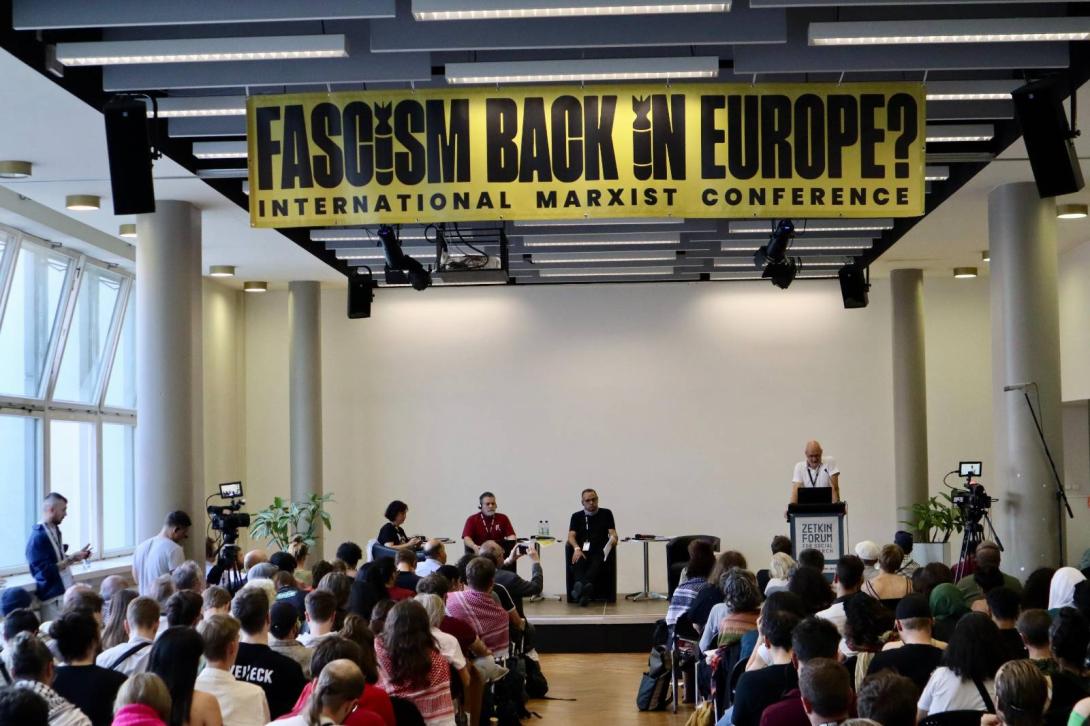“Anti-fascism today must also be anti-imperialist”: Conference in Berlin Calls for Resistance

From June 20 to 22, 2025, organizers, researchers, and activists from across Europe gathered in Berlin, Germany, for the conference “Fascism Back in Europe?”, hosted by the Zetkin Forum for Social Research. The event was part of the Dilemmas of Humanity global process, which seeks to sharpen political and economic understanding about the capitalist crisis and discuss solutions toward socialism.
Held at a moment of rising authoritarianism across the continent and the world, the conference offered not only a political analysis but also strategies for building a broad Left resistance. As Max Rodermund of the Zetkin Forum put it, “The air is thick with fascism in Europe.”
The conference goal, he said, was not only to diagnose the resurgence of far-right ideologies, but to map out ways to defeat them.
Over three days, speakers from Eastern and Western Europe explored how fascist and far-right currents are being fed by deepening economic crises, militarization, and a political class that is increasingly abandoning even the façade of liberal democracy. According to Hungarian Workers’ Party leader Gyula Thürmer, “If capitalism doesn’t resolve the crisis, people might remember socialism.” Her warning encapsulated a central theme of the gathering: in order to protect the capitalist system, ruling elites are embracing authoritarianism and rehabilitating fascist ideas.
One panel examined the dynamics in Eastern Europe, where liberal and conservative governments are aggressively promoting anti-communism and historical revisionism, from the glorification of fascist collaborators in Serbia to bans on communist symbols in the Baltic states. These actions, participants argued, are not merely symbolic—they are a deliberate attempt to erase socialism as a political horizon.
The picture in Western Europe is not much different. Susann Witt-Stahl pointed to Germany’s own role in undermining antifascist memory, while French researcher Marlène Rosato detailed how Macron’s government repressed the parliamentary victory of the New Popular Front. In both cases, liberalism has paved the way for the normalization of far-right ideas and policies.
Throughout the conference, the close relationship between fascism and capitalism was emphasized. As economist Clara Mattei noted, “Benito Mussolini was one of the most diligent students of austerity policies.” Understanding fascism, she argued, means recognizing its role in enforcing exploitation and social discipline on behalf of capital—a pattern that persists today under the guise of neoliberal governance.
The conference also highlighted the importance of building internationalist and anti-imperialist resistance. Several speakers drew connections between the rise of fascism in Europe and the genocide in Gaza, the militarization of EU policy, and the broader project of Western imperialism. “Anti-fascism today must also be anti-imperialist,” emphasized Rodermund.
Learn more about the Conference and the work of Zetkin Forum at zetkin.forum.